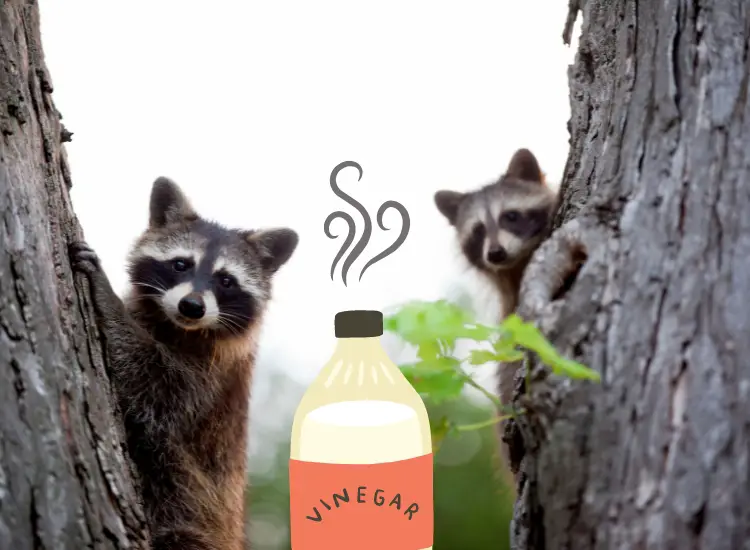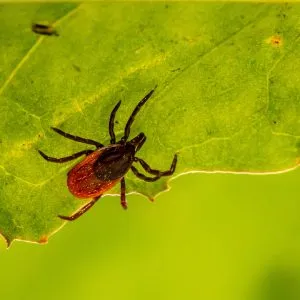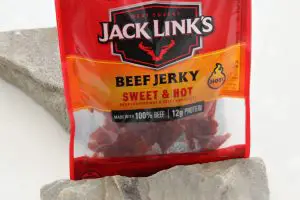Will Vinegar Keep Raccoons Away? The Surprising Answer Revealed

Will vinegar keep raccoons away? If you’ve been dealing with pesky raccoons invading your backyard, campsites, or rummaging through your trash, you might be wondering if vinegar is an effective deterrent. While there’s no surefire way to keep raccoons away, vinegar is often touted as a natural repellent. So is it a myth, like ropes and snakes? Let’s take a closer look at whether vinegar can really help you keep these furry creatures at bay.
Raccoons are known to have a strong sense of smell, and vinegar, with its pungent odor, is believed to be offensive to them. The idea is that by spraying vinegar in areas frequented by raccoons, you can create an environment that they find unappealing and hopefully discourage them from sticking around.
However, it’s important to note that while some people claim success with using vinegar to repel raccoons, it may not work for everyone. Raccoons are curious and adaptable creatures, and they can become accustomed to certain scents over time. Additionally, vinegar may only provide temporary relief as raccoons may eventually become tolerant of the smell.
While vinegar may be worth a try, it’s also essential to take other preventive measures to minimize raccoon activity around your property. In this article, we’ll explore and find out the truth about vinegar & racoons.
Quick Links
Can Vinegar Deter Raccoons?
When it comes to keeping raccoons away, vinegar is often suggested as a potential deterrent. However, its effectiveness in repelling these mischievous creatures is somewhat debatable. While some people claim success with using vinegar to deter raccoons, others have found little to no effect. It is important to note that raccoons are highly adaptable and intelligent animals, and their behavior can vary depending on the circumstances and individual raccoon.
Vinegar contains acetic acid, which has a strong smell that can be unpleasant to many animals, including raccoons. Some homeowners have reported that spraying a mixture of vinegar and water around their property, particularly in areas where raccoons are frequenting, has helped to keep them away. The strong odor of vinegar may create an undesirable environment for raccoons, encouraging them to seek other locations for food or shelter.
However, it is worth noting that vinegar is not a foolproof solution. Raccoons are opportunistic feeders and can become accustomed to certain smells over time. They may initially be repelled by the scent of vinegar, but if they are persistent or food sources are scarce, they may eventually adapt and return to the area. Additionally, vinegar is not a long-term solution, as its odor will dissipate over time.
If you are considering using vinegar as a raccoon deterrent, here are a few tips to keep in mind:
- Use a vinegar-water mixture: Dilute vinegar with water in a 1:1 ratio to create a solution that is less harsh but still has a strong scent.
- Apply strategically: Spray the vinegar solution around areas where raccoons are causing problems, such as garbage cans, vegetable gardens, or entry points to your home.
- Reapply as needed: The scent of the vinegar will fade over time, so it may be necessary to reapply the solution periodically to maintain its effectiveness.
- Consider other deterrents: In addition to vinegar, you may want to explore other raccoon deterrents, such as motion-activated lights, sound devices, or physical barriers.
While vinegar may offer some level of deterrence, it is important to remember that raccoons are resourceful animals. If you are experiencing persistent raccoon problems, it may be best to consult with a professional wildlife control service for more effective and long-lasting solutions.
How Does Vinegar Repel Raccoons?
Vinegar has long been suggested as a natural method to repel raccoons. While it may not be a foolproof solution, vinegar can be effective in deterring raccoons from certain areas. The strong scent of vinegar can disrupt the sensitive olfactory system of raccoons, making them less likely to approach or return to treated areas.
- Spray vinegar along entry points: Apply vinegar to areas where raccoons may be gaining access to your property, such as around garbage bins, fences, or holes.
- Soak rags or cotton balls with vinegar: Place vinegar-soaked rags or cotton balls in areas frequented by raccoons, such as attics, crawl spaces, or garbage cans.
- Mix vinegar with other deterrence methods: Combine vinegar with other raccoon deterrents, such as ammonia or pepper, for a stronger effect.
- Reapply regularly: Vinegar may need to be reapplied periodically, especially after rainfall or if the scent dissipates.
While vinegar can be a useful tool in raccoon deterrence, it’s important to note that its effectiveness may vary. Some raccoons may be less affected by vinegar, especially if they have grown accustomed to human presence or have found a compelling food source. For persistent raccoon problems, it’s advisable to consult with pest control professionals for more comprehensive solutions.
Methods for Using Vinegar to Keep Raccoons Away
Using Vinegar as a Repellent Spray
One method to deter raccoons from your property is to create a vinegar repellent spray. Combine equal parts white vinegar and water in a spray bottle. Shake well to mix the solution thoroughly. Spray the mixture around areas where raccoons are known to frequent, such as garbage bins, gardens, or entry points. The strong smell of vinegar can help deter raccoons and discourage them from coming close to your property.
Soaking Rags or Cotton Balls in Vinegar
Another way to utilize vinegar as a raccoon deterrent is by soaking rags or cotton balls in vinegar. Place these saturated items near raccoon entry points or areas where they are causing trouble. The strong scent of vinegar can act as a deterrent and discourage raccoons from approaching.
Using Vinegar in Bird Feeders or Trash Bins
If raccoons are targeting your bird feeders or trash bins, vinegar can be an effective solution. Soak a cloth or sponge in vinegar and wipe down the bird feeder poles or trash bin lids. The vinegar smell can help repel raccoons and discourage them from accessing these areas. Remember to reapply the vinegar as needed, especially after rain or heavy moisture.
While vinegar can be a useful tool in deterring raccoons, it is important to note that its effectiveness may vary. Raccoons are intelligent and adaptable creatures, so using multiple deterrent methods alongside vinegar, such as securing garbage bins or installing motion-activated lights, can provide better results in keeping them away from your property.
Other Natural Repellents for Raccoons
While vinegar is known as a potential raccoon repellent, there are other natural alternatives that can help keep these nocturnal creatures away from your property. Here are some additional natural repellents you can try:
- Peppermint oil: The strong scent of peppermint can deter raccoons. Soak cotton balls in peppermint oil and place them around areas where raccoons are often seen.
- Ammonia: Raccoons dislike the smell of ammonia. Soak rags in ammonia and place them near trash cans or other areas where raccoons are a problem.
- Cayenne pepper: Sprinkle cayenne pepper around your yard or garden to repel raccoons. The strong smell and taste can be unpleasant for them.
- Motion-activated sprinklers: Set up motion-activated sprinklers in your yard. The sudden burst of water can startle and deter raccoons from entering your property.
- Ultrasonic devices: Install ultrasonic devices that emit high-frequency sounds that can irritate and repel raccoons, but are not audible to humans.
- Secure trash cans: Use raccoon-proof trash cans with secure lids to prevent raccoons from accessing and scattering garbage.
Remember to always follow local regulations and guidelines when using any repellents, and consult with professionals for severe raccoon infestations or persistent problems.
Tips for Using Vinegar Effectively as a Raccoon Deterrent
Vinegar is a versatile and natural solution that can help deter raccoons from your property. Here are some tips for using vinegar effectively as a raccoon deterrent:
Vinegar Spray
Create a vinegar spray by mixing equal parts water and vinegar in a spray bottle. Spray the solution around the areas where raccoons are likely to visit, such as garbage cans, garden beds, and entry points. The strong smell of vinegar can help deter raccoons from these areas.
Soak Rags in Vinegar
Soak rags or pieces of cloth in vinegar and place them strategically around your property. Raccoons dislike the strong smell of vinegar and are likely to avoid areas where they detect it.
Vinegar Soaked Garbage Bags
If raccoons are rummaging through your garbage cans, try soaking garbage bags in vinegar before disposing of them. The smell of vinegar can discourage raccoons from disturbing your trash.
Secure Food Sources
Alongside using vinegar as a deterrent, it’s important to secure any potential food sources that may attract raccoons. Ensure that garbage cans have tight-fitting lids, and secure compost bins to prevent easy access for raccoons.
Reapply as Needed
While vinegar can be effective in deterring raccoons, it may need to be reapplied periodically, especially after rainfall or when the scent starts to fade. Regular reapplication will help maintain its effectiveness as a deterrent.
It’s worth noting that while vinegar can help deter raccoons, it may not be a foolproof solution. If you continue to experience raccoon issues, it’s advisable to consult with professionals or wildlife control experts for further assistance.
Best Places to Apply Vinegar to Keep Raccoons Away
Vinegar is often touted as a natural deterrent for raccoons due to its strong odor and taste. While it may not guarantee complete raccoon prevention, it can help in deterring them from certain areas. Here are some of the best places to apply vinegar to keep raccoons away:
- Garden and Yard: Spray vinegar around the perimeter of your garden or yard to create a barrier. Concentrate on areas where raccoons are known to frequent, such as near trash cans, vegetable patches, or bird feeders.
- Trash Cans: Before placing your trash cans outside, spray vinegar on the lids and around the base. This can help mask the scent of food and discourage raccoons from rummaging through your garbage.
- Entry Points: If you’ve noticed raccoons attempting to enter your home or other structures, apply vinegar near these entry points. Focus on areas like crawl spaces, attic vents, or gaps in the foundation to deter them from getting inside.
- Outdoor Furniture: If raccoons are causing damage to your outdoor furniture or constantly using it as a resting spot, spray vinegar on the surfaces. Raccoons dislike the strong smell and may be deterred from approaching.
- Pet Areas: If you have outdoor pet areas, like dog houses or feeding areas, spray vinegar around these spaces. This can help keep raccoons away from your pets’ food and living areas.
While vinegar can be an effective deterrent, it may need to be reapplied periodically, especially after rain or if the odor dissipates. Additionally, it’s important to note that vinegar may not work for all raccoons, as some may become accustomed to the smell over time.
Precautions When Using Vinegar as a Raccoon Repellent
Vinegar is a commonly suggested method for keeping raccoons away from certain areas. While vinegar can be an effective natural raccoon repellent, it is important to take some precautions to ensure its safe and proper use. Here are some key considerations:
Proper Application and Concentration
When using vinegar as a raccoon repellent, it is essential to apply it properly. Spray the vinegar solution directly onto surfaces or areas where raccoons are causing problems. Additionally, ensure that the vinegar is sufficiently concentrated for effectiveness. A 1:1 ratio of vinegar to water is commonly recommended.
Take Safety Measures
While vinegar is generally safe, it is advisable to take safety precautions when using it for raccoon repellent purposes. Avoid direct contact with vinegar and use protective gloves or goggles if necessary. Additionally, ensure proper ventilation when applying vinegar indoors to avoid inhaling excessive fumes.
Consider Environmental Impact
Vinegar is an eco-friendly option when compared to chemical repellents, but it is still important to consider its impact on the environment. Avoid excessive use of vinegar and only apply it in areas where raccoon presence poses a problem. Dispose of any leftover vinegar solution responsibly and consider alternative methods or professional assistance if raccoon issues persist.
These precautions can help you effectively and safely utilize vinegar as a raccoon repellent. However, it’s important to note that vinegar may not be a foolproof solution for every situation. If raccoon problems persist or pose a significant threat, it is advisable to consult with wildlife experts or pest control professionals for appropriate guidance and assistance.
Effectiveness of Vinegar in Preventing Raccoon Infestation
Many homeowners wonder if vinegar can effectively keep raccoons away from their property. While vinegar has been touted as a natural deterrent for various pests, its effectiveness in preventing raccoon infestation is questionable. Raccoons are intelligent and adaptable creatures, and while they may be temporarily repelled by the strong scent of vinegar, it is unlikely to provide a long-term solution or completely prevent raccoons from returning.
Raccoons are attracted to food sources, such as garbage cans, pet food, and bird feeders. To effectively minimize raccoon activity, it is essential to address the attractants and secure potential entry points. Here are some tips to prevent raccoon infestation:
- Secure garbage cans: Use raccoon-proof bins or secure lids to prevent raccoons from accessing food waste.
- Remove food sources: Do not leave pet food or birdseed outside overnight, as it can attract raccoons.
- Clear debris: Keep your yard and surroundings clean and free of clutter that can serve as potential hiding spots for raccoons.
- Seal entry points: Inspect your property for any openings or gaps that raccoons can use to access your home or outbuildings. Seal these entry points to prevent raccoon entry.
- Install motion-activated lights or sprinklers: These can deter raccoons by surprising them with sudden light or water spray.
If you are experiencing persistent raccoon issues, it is advisable to seek professional assistance from wildlife control experts. They can assess the situation, implement effective prevention measures, and safely remove raccoons if necessary.
Conclusion
While vinegar may be suggested as a natural deterrent for raccoons, its effectiveness in preventing raccoon infestation is questionable. Raccoons are intelligent and adaptable creatures, and while they may be temporarily repelled by the strong smell of vinegar, it is unlikely to provide a long-term solution or completely prevent raccoons from returning. It’s important to take additional steps to minimize raccoon activity by securing garbage cans, removing food sources, clearing debris, and sealing entry points.
If you continue to experience persistent raccoon issues, it is advisable to consult with wildlife control experts who can assess the situation and implement effective prevention measures. They can also safely remove raccoons if necessary.







